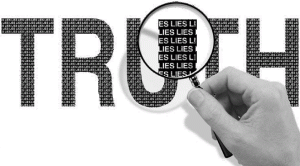 A couple years ago, while randomly browsing the internet, Iran across this title: Telling Lies for Fun and Profit by Lawrence Block. (His books are good.)
A couple years ago, while randomly browsing the internet, Iran across this title: Telling Lies for Fun and Profit by Lawrence Block. (His books are good.)
It’s a book on writing and the title got me thinking. I never picked up the book, but the title stuck in my head.
A story is made up, a piece of fiction. It doesn’t exist. That, on one level, makes it a lie.
But! Everyone knows a story can’t be real. Not everyone knows such a thing of other, more normal lies.
On the other hand, a story must have emotional / psychological truths. How would anyone relate to a character otherwise? And it must have at least some factual truths, else someone will cry: bad research!
The best lies are supposed to have truth, so that doesn’t mean the story can’t be called a lie. Even so, I cannot quite convince myself I write lies. Perhaps it would he easier if the word didn’t have negative meanings.
What do you think? Is aIl fiction some bizarre form of lying?
Has anyone read the book? Does it offer an explanation? Maybe the title is just an example of someone’s expertise at title creation something eye-catching and memorable.

Fiction isn’t a lie, IMO. Lies are deliberately told untruths, mostly with the intention to deceive. Fiction is make-belief, it’s a collaborative effort on both sides, the writer telling the story, and the reader willing to make-believe that it could actually happen.
The only thing fiction and lies have in common is the fact that none are entirely based in fact, and therefor they can’t be proven to be real. But that’s the same thing that fiction and dreams have in common. And you can’t equal lies with dreams, can you?
Well, that got me thinking lol! I suppose fiction could be considered a way of lying. You know how some people lie to others about things that have happened? Instead of doing that, writers write that story down on the page instead of saying it out loud, thus taking away the obvious thing all writers know to be true: We are all a little bit barmy! 😉
I suppose the word “fiction” would be best summed up as Creative Lying ? *another a to z blogger
It’s all about the suspension of disbelief, really. A lie is, in my understanding, a deliberate attempt to deceive another by covering up or manipulating the truth. You could argue that a story is an attempt to deceive but at no point does the writer pretend that the story IS true – both the writer and the reader know it’s just a story, so I think it removes the element of deception inherent to a lie.
Fiction isn’t real, but there are a lot of truths in fiction stories. We can add history and medical facts, we can use events from our lives as inspiration as well as things we’ve experienced. It’s just the characters and our plots that aren’t real. And since it’s categorized as fiction, readers should understand the writer made up the story. 🙂
Is a lie still a lie if I tell you I’m lying? I guess it is, but I like the point that others are making that people read fiction with the understanding it is invented. Contrast that to the response readers have when they find out that certain works published as “memoir” are totally fabricated. Readers just want to know whether a work is true or contrived.
The aliens in Galaxy Quest come to mind here. They had no way to distinguish between fiction and deliberate falsehood, and were unable to detect a lie as it was being told. Or as David Brin wrote in Earth, we have as many words to describe lies as Austrians have for snow. (paraphrased)
On the other hand, facts and truth are not exactly the same thing. A mythos may not be literal fact, but still contain truths about the world. Explaining the Big Bang, quantum theory, and inflation to a bunch of semi-nomadic tribes mired in the Bronze Age would have blown their minds… so instead it was “And God said, ‘Let there be light,’ and there was light.” 😉
I don’t know if I call fiction lying unless the primary goal of the fiction was to deceive the reader. A good story is real to me; experiencing another world. No lie.
I wouldn’t call fiction lying, but I understand your line of thinking. I haven’t read the book, but I’m going to check it out. 🙂
Hmmm I’ve never really thought of that before. Definitely something to ponder!
I prefer to think of writing as an exploration into the land of make believe.
Thanks for visiting The Book Connection.
Interesting question!! I like Veronica’s take on it. A lie is when you are deliberately deceiving someone. Sure, writing a book is not ‘truth’ otherwise it wouldn’t be in the fiction category. But people, or at least I hope most people, know that the story isn’t true. So I wouldn’t consider the writer of the story a liar.
Carrie~Anne at That Dizzy Chick
It’s an interesting question Sonia. Fiction by the very nature of the word tells us it’s not real life, but good fiction allows us to suspend our disbelief in order to enter the world the author is creating. I think Lies is the wrong word for it, because it’s not so much a lie as creating an alternative world/situation etc…… I’ve never heard of the book you mentioned either.
Writing a story is telling a lot of lies to convey a truth. I like this post, very much, Sonia.
It is a great question which mirrors true life… we all tell ourselves lies, present a fact to the world etc. because it is human nature but I for one am fascinated by the concept and where do we stand on lies by omission?
I remember a lot of my friends thought the Celestine prophecy was a true story, but that doesn’t make it a lie… or does it? Interesting post, It’s not as black and white as it seems. I’m sticking with a story allows us to enjoy make-believe, a lie betrays us.
I read that book back in junior high. I thought it was real, too, until I saw the same book a few years later in the fiction section. Don’t remember where I picked it up, but maybe from the non-fiction part of the library.
So it did a really good job of presenting the fiction as real.
In a sense I would compare fiction to a magic show. Creative deception for the purpose of entertainment. Lying is deception for the sole purpose of deceiving other in order to achieve personal gain. Lying in the end is not fun or entertaining other in some perverse sense.
Lee
Wrote By Rote
An A to Z Co-host blog
I hadn’t thought of that comparison but H’s a good one.
I never read the book with the title, “Say what you mean: get what you want”, but I took the principle to heart. Sue
Thats made me think. I never thought of fiction as lying, just story telling, a form of entertainment, those reading are already aware that it is not a true story.
The again the definition of lying is ‘Not telling the truth’ according to Google, and often this is what fiction does (since its all made up). As long as you warn the readers that it is fake then you are not lying. You could just say it is imagination. If you are imagining something it is in your mind, by writing it you are giving it life, so it could be your imaginations truth,
Then again what if your story is coincidentally a real persons actual life story? Now my mind is thinking too much…